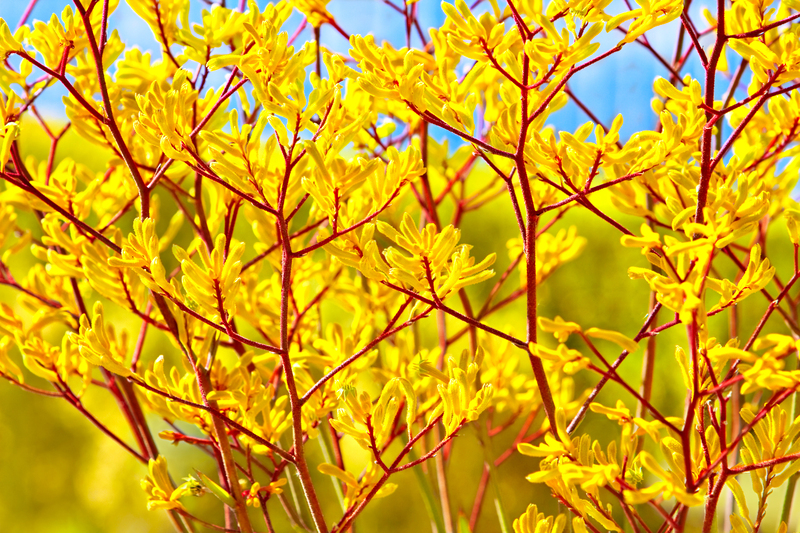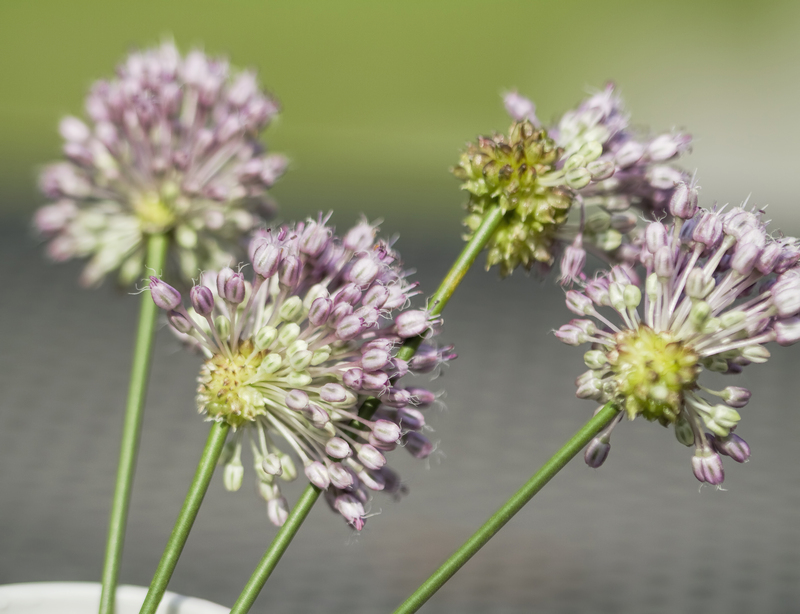Garden Design Strategies for Dog Owners
Posted on 24/06/2025
Garden Design Strategies for Dog Owners: Creating a Beautiful and Pet-Friendly Outdoor Haven
For many pet lovers, the garden is much more than a pretty space--it's also a playground, a relaxation zone, and, occasionally, a racetrack for furry family members. Designing a garden that harmonizes your landscaping vision with the needs of your canine companions can be a challenging yet deeply rewarding venture. This comprehensive guide discusses garden design strategies for dog owners, exploring solutions that safeguard both your plants and your pets, enhance aesthetics, and foster a safe, engaging environment for everyone.

Understanding Your Dog's Needs & Behavior
Before diving into layouts and plant lists, it's vital to understand your dog's behavior. Dogs are naturally curious, adventurous, and occasionally destructive. Tailoring your garden with their tendencies in mind will minimize frustration and protect your investment.
- Activity Level: High-energy breeds need open spaces for romping, while calmer pets may favor lounging zones.
- Digging Habits: Some dogs love to excavate. Designating a digging area can channel this instinct.
- Chewing and Grazing: Curious dogs might nibble plants. Knowing what's toxic is crucial.
- Marking & Patrol Routes: Many dogs patrol the garden perimeter and mark territory, which may cause wear on certain routes.
Pro Tip: Observe & Record
Spend some time watching your dog in the yard. Which areas does your pet gravitate to? This survey helps craft dog-friendly landscaping solutions tailored to your unique companion.
Key Principles for Pet-Friendly Garden Design
1. Safety First: Secure Boundaries and Exits
The number one rule in landscape design for dog owners is security. Effective fencing and gated areas should:
- Be tall (recommended 1.8m/6ft+) for jumpers or climbers
- Have no gaps underneath or between panels to thwart diggers or small dogs
- Be made of durable, non-toxic material
- Include self-closing gates and dog-proof latches
*An invisible or electric fence can be considered, but always ensure it is humane and consult your vet.
2. Pet-Safe Plants
A key aspect of dog-friendly garden design is selecting non-toxic, hardy plants that can withstand playful paws and won't harm your pet if chewed. Some excellent choices include:
- Sunflowers (Helianthus annuus)
- Snapdragons (Antirrhinum majus)
- Camellias
- Fuchsias
- Roses (caution: thorns can prick, but petals and hips are safe)
- Marigolds (but avoid ingestion in large quantities)
- Herbs like basil, thyme, and sage (many are safe, but always double-check!)
Avoid dangerous plants like: azaleas, lilies, foxglove, oleander, sago palm, daffodil bulbs, and yew. These are highly toxic to dogs.
3. Durable, Dog-Proof Surfaces
Dogs can be tough on lawns and paths. To prevent muddy paws and torn-up turf, consider these dog-friendly garden ground covers and paths:
- Artificial Turf: Resilient and low-maintenance.
- Hardscaping: Flagstone, brick, and pavers create paw-friendly paths--always set stones close together to avoid claws getting caught.
- Mulch: Wood chip mulch is popular, but avoid cocoa mulch (toxic). Cedar and pine are generally safe, but pea gravel is a clean, cool alternative.
- Clover Lawns: Clover resists pet urine stains and recovers well from wear.
4. Zoning: Dedicated Spaces for Play, Rest, & Relief
Clear zoning in your dog-friendly backyard helps keep peace in your outdoor family:
- Dig Pits: A sandbox or loose soil bed can satisfy diggers. Bury toys or treats to encourage use.
- Play Lawns: Reserve an open area for fetch or running.
- Shady Retreats: Arbor, dog house, or large tree for nap time, especially on hot days.
- Toilet Area: Train your dog to use a specific patch to simplify cleanup and protect ornamental beds.
5. Easy Maintenance
A pet-safe garden should not mean endless upkeep. Minimize fuss by:
- Using ground cover to smother weeds and resist wear
- Opting for robust, fast-recovering plants
- Installing an automatic irrigation system
- Choosing easy-clean hardscape materials
Design Features That Delight Dogs & Owners Alike
A. Dog Paths and "Race Tracks"
If your pet habitually travels along the fence or patrolling certain areas, formalize these dog runs or loops with durable materials. Create gently curving pathways using:
- Gravel or decomposed granite
- Paver stones
- Cedar chips
Tip: Flank with tough, flexible shrubs that tolerate brushing, like lavender or ornamental grasses.
B. Sensory Gardens
Dogs experience the world differently--through scent, sound, and touch. Enrich your garden by including:
- Herbs and aromatic plants (mint, rosemary, fennel)
- Rustling grasses that provide movement and sound
- Safe objects--logs, rocks, tunnels--for tactile discovery
C. Water Features
On hot days, many dogs relish a good splash. Consider:
- Shallow splash pools
- Mist sprayers or bubblers
- Dog-accessible ponds (ensure easy exit for safety!)
Important: Regularly refresh ponds and water bowls to prevent mosquito larvae and bacteria.
Dog-Proofing Garden Essentials & Hazards
Pet-Safe Fertilizers and Chemicals
Many traditional fertilizers, pesticides, and herbicides are hazardous. Opt instead for:
- Organic, pet-safe plant foods
- Physical or natural pest deterrents (like neem oil or garlic spray)
- Bark mulches instead of weedkillers to suppress growth
Avoid: Slug pellets, cocoa mulch, and any product labeled harmful to pets or children.
Compost and Garden Waste Safety
Compost piles can harbor moldy food, sharp sticks, and animal waste pathogens--all risky for dogs. Secure compost in bins and keep garden waste tidied up.
Protecting Delicate Areas
- Use decorative fences, low hedges, or natural barriers to shield prized plants or beds from playful pups.
- Raised planters keep roots out of reach.
Garden Design for Dog Owners: Inspiring Case Studies
Case Study 1: The Active Family Garden
The Mitchell family designed their medium-sized yard with two energetic Labradors in mind. A central open lawn is surfaced in hardy rye grass, flanked by stone-paved "racetracks" along the fence. Raised beds thwart snacking, while a shaded pergola and kiddie pool offer relaxation zones. Pea gravel in the toilet corner makes for easy clean up.
Case Study 2: The Urban Courtyard Retreat
Sarah, a Pug owner, turned her concrete patio into a green oasis. Claustra screens support climbing jasmine, ceramic pots host tough perennials, and a timber deck features an artificial turf zone for play. A vertical herb wall serves both as aromatherapy and culinary use.

Frequently Asked Questions about Dog-Friendly Gardening
Q: Can I still have a vegetable garden?
A: Absolutely! Use raised beds or fencing to prevent dogs from trampling or eating crops. Choose sturdy, enclosed planters and avoid potentially toxic veggies like onions and garlic.
Q: How do I repair urine spots in my lawn?
A: Train dogs to go in a specified gravel/mulch area, water spots immediately, and choose resilient ground covers. Overseed with rye or clover to help recovery.
Q: Are there ways to prevent digging?
A: Combine training and garden design: offer a sandbox or digging patch, and reward use. Use chicken wire or rocks under other beds to deter excavation.
Final Thoughts: Harmonizing Beauty and Practicality
With the right gardening strategies for dog owners, you can enjoy a lush, vibrant garden without sacrificing your pet's happiness or wellbeing. Prioritize safety, choose durable and pet-friendly materials, and carve out dedicated spaces for all your family members. With forward planning, your garden can be a source of pride, pleasure, and paw-sitive energy for years to come.
Happy gardening--and tail wagging!
Latest Posts
Weather Defense for Your Garden: Methods to Prevent Harm
Fostering a Love for Nature with Child-Safe Garden Designs
3 Essential Tips to Keep Your Garden Weed-Free
Crafting a Haven of Peace: Zen Garden Ideas to Try
Step-by-Step Guide to Perfecting Your Garden Seating Aesthetic

